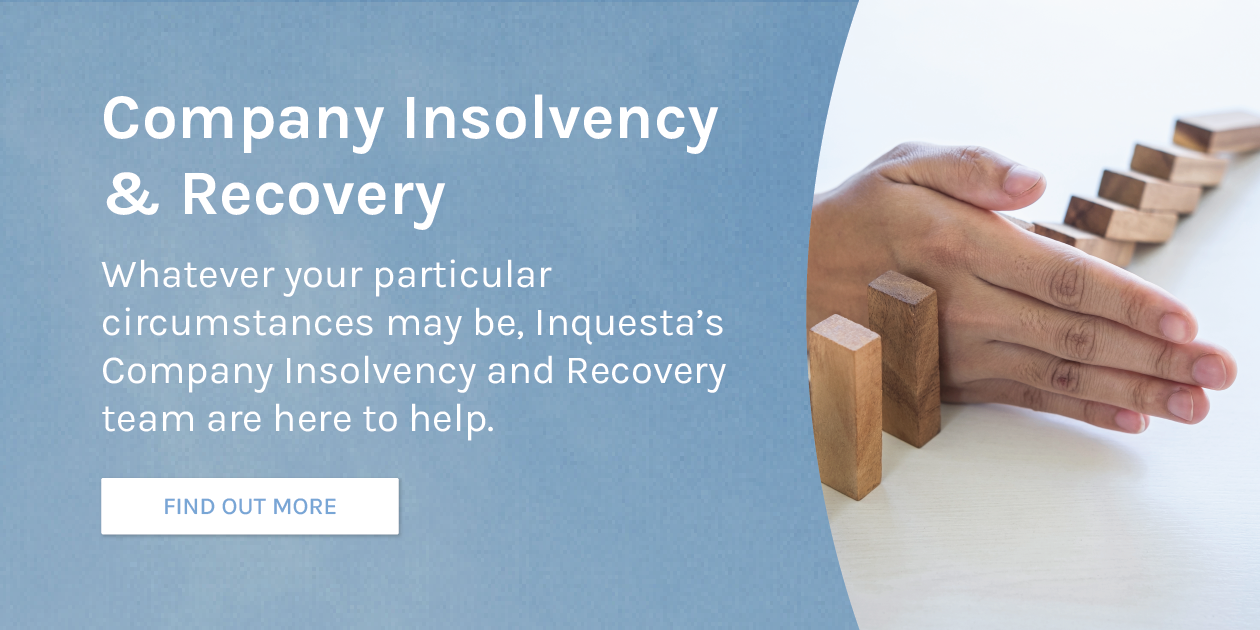The Greatest Guide To Insolvency Practitioner
The Greatest Guide To Insolvency Practitioner
Blog Article
Indicators on Insolvency Practitioner You Need To Know
Table of ContentsThe smart Trick of Insolvency Practitioner That Nobody is Talking AboutThe Insolvency Practitioner StatementsThe Only Guide for Insolvency PractitionerNot known Facts About Insolvency PractitionerAll about Insolvency Practitioner
Whether or not you need to make use of a bankruptcy specialist (IP) to liquidate your firm depends on different variables. While involving an insolvency expert for all forms of liquidation is not a legal need, doing so can often streamline the procedure and guarantee compliance with lawful needs. Liquidating a firm is a critical decision that comes with considerable consequences.
It is a treatment used when a business does not have any type of financial institutions, or all of their lenders can be repaid completely with legal interest. Comprehending the different types of bankruptcy procedures can assist you figure out the very best course of activity for your company's liquidation or various other formal insolvency treatments itself.
This is mandatory in order to abide by lawful needs - Insolvency Practitioner. This is since IPs have the required qualifications and experience to ensure that the liquidation process is performed based on all appropriate regulations and regulations. By involving an accredited insolvency expert, you can have tranquility of mind knowing that your firm's liquidation process will certainly be managed expertly and in conformity with the pertinent lawful demands
Little Known Questions About Insolvency Practitioner.
The bankruptcy practitioner is assigned as a liquidator and is in charge of taking care of the firm and liquidator's financial debts exceptional responsibilities and possessions. This procedure involves selling the business's assets and distributing the earnings to lenders. Upon completion of the process, the business is gotten rid of from the register at Companies House.
Falling short to do so can cause personal liability for the company or director for the creditor's financial obligations. Volunteer liquidation, which consists of Financial institutions' Volunteer Liquidation (CVL) and Participants' Volunteer Liquidation (MVL), is initiated by the business's supervisors and shareholders when they can no more pay their financial obligations. In a CVL, the insolvency practitioner is designated as the liquidator, responsible for taking care of business debts and all firm properties.

7 Simple Techniques For Insolvency Practitioner
By examining the expertise and experience of possible insolvency specialists, you can make certain that you pick a practitioner that possesses the required certifications to manage your company's liquidation process properly. While insolvency practitioner-led liquidation is often one of the most suitable strategy for companies encountering insolvency, there are alternative methods to think about, such as striking off and partial liquidation.
It's necessary to review all available alternatives before determining on the next ideal service or training course of action for your company. Striking off firms' signs up is a more uncomplicated and economical way to close inactive or small business without debts or properties. To strike off a company, its name is eliminated from the Business House register by sending kind DS01.
Prior to selecting striking off, it's important to consider the benefits and drawbacks of this method and take into consideration whether it's the appropriate choice for your organization. Partial liquidation is another option to insolvency practitioner-led liquidation, wherein a firm sells off particular properties and obligations while proceeding to run with the remaining assets and liabilities.
An Insolvency Professional will certainly have the ability to recommend you of click here now the ideal course of action to take and guarantee that whatever runs efficiently. Sadly, it is not feasible to sell off a firm without a liquidator. Selecting an authorised insolvency practitioner is needed for the procedure of volunteer liquidation to start.
The Buzz on Insolvency Practitioner
It is possible to shut and liquidate your company without making use of a liquidator, given your business is solvent and you fulfill the qualification requirements to liquify or liquidate it. If your firm is insolvent, you may be required to make use of a liquidator and begin official insolvency treatments. Here are some various other helpful articles relating to business liquidation in the UK:.
Remaining in a position where you're not able to pay your firm's lenders is exceptionally difficult. In an effort to avoid increasing the level of financial debt, numerous business attempt to negotiate straight with their financial institutions and accept a casual plan. If the debt is rather small click here for more and owed to one lender, and the financial institution is being participating, getting in right into an informal financial debt setup is probably the most effective option, instead of searching the web for 'an insolvency practitioner near me'.
On the various other hand, if there are important link multiple lenders and the level of financial obligation is huge, financial institutions may not be so prepared or participating. To avoid liquidation or bankruptcy, it is better to work with a bankruptcy practitioner to attract up formal proposals and negotiate with creditors on your part.
Some Of Insolvency Practitioner
Whilst it is a method to manage debt, there are significant risks entailed with this kind of debt arrangement - Insolvency Practitioner. If a creditor wants to participate in a casual setup (IA) whereby the borrower has concurred to make routine, if reduced, payments to settle the financial obligation, it is essential to stay with the agreement

The creditor is within their civil liberties to back out of the contract and request the courts for your company to be liquidated at any type of time. A formal setup that has been recommended by an insolvency expert on your part, and agreed by a financial institution, gives a much safer choice.
Report this page